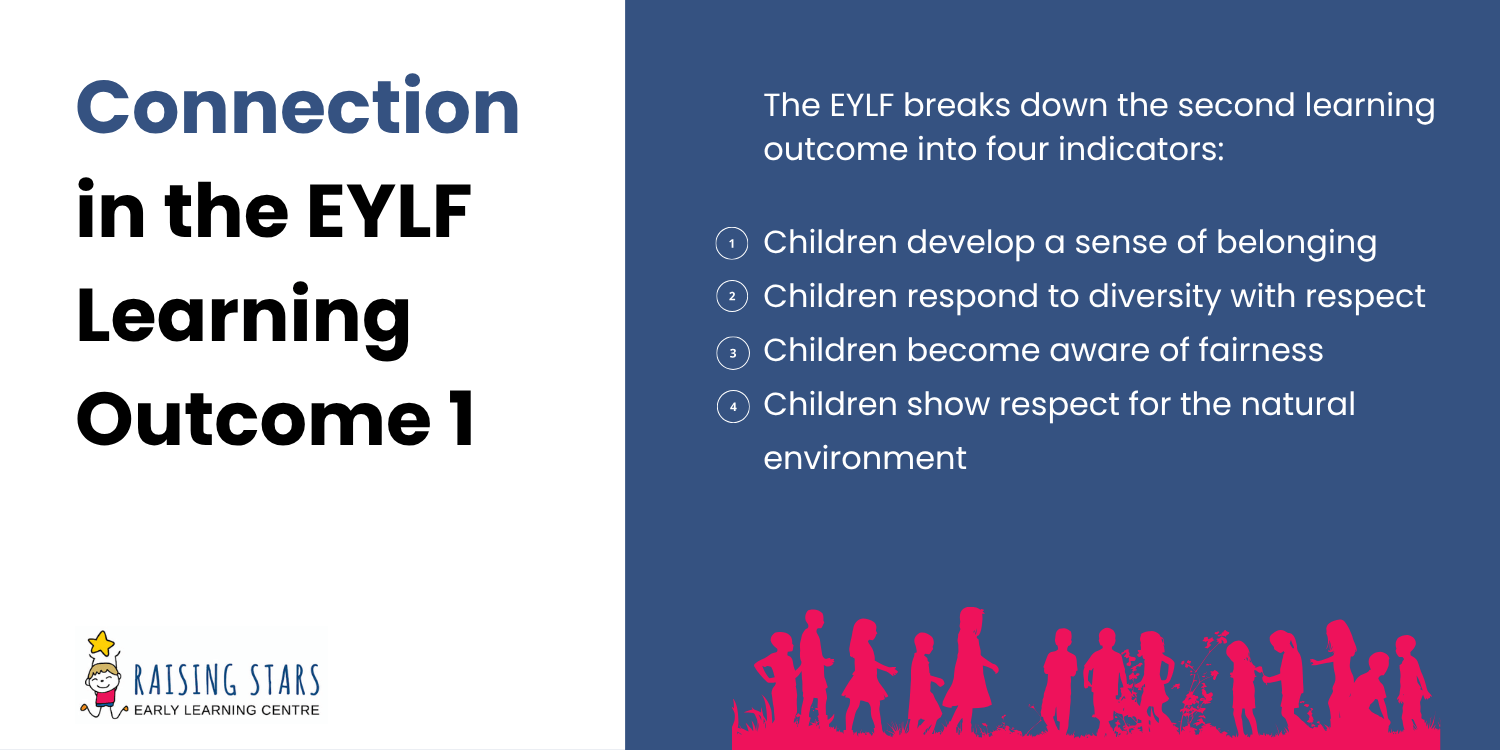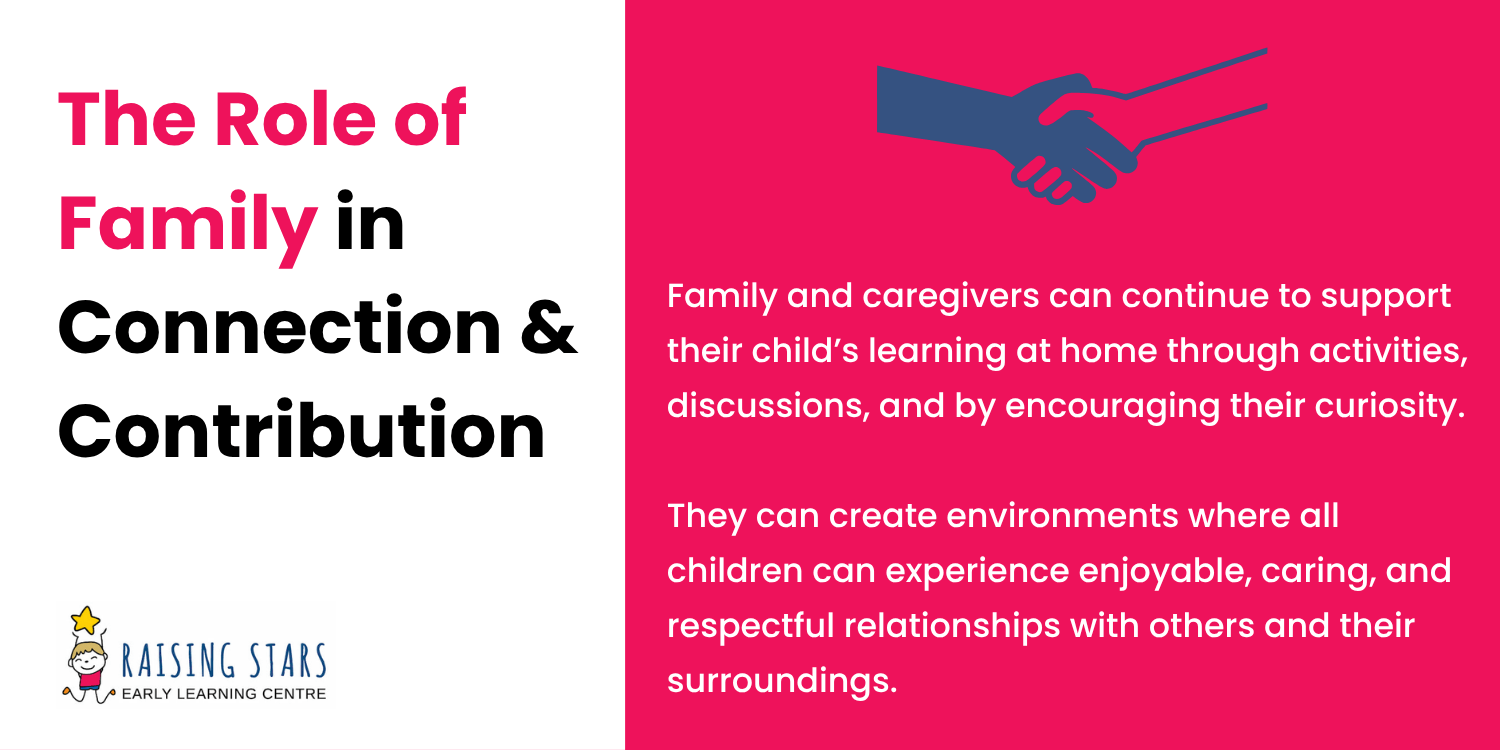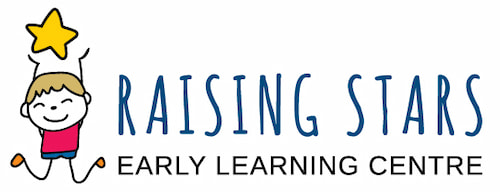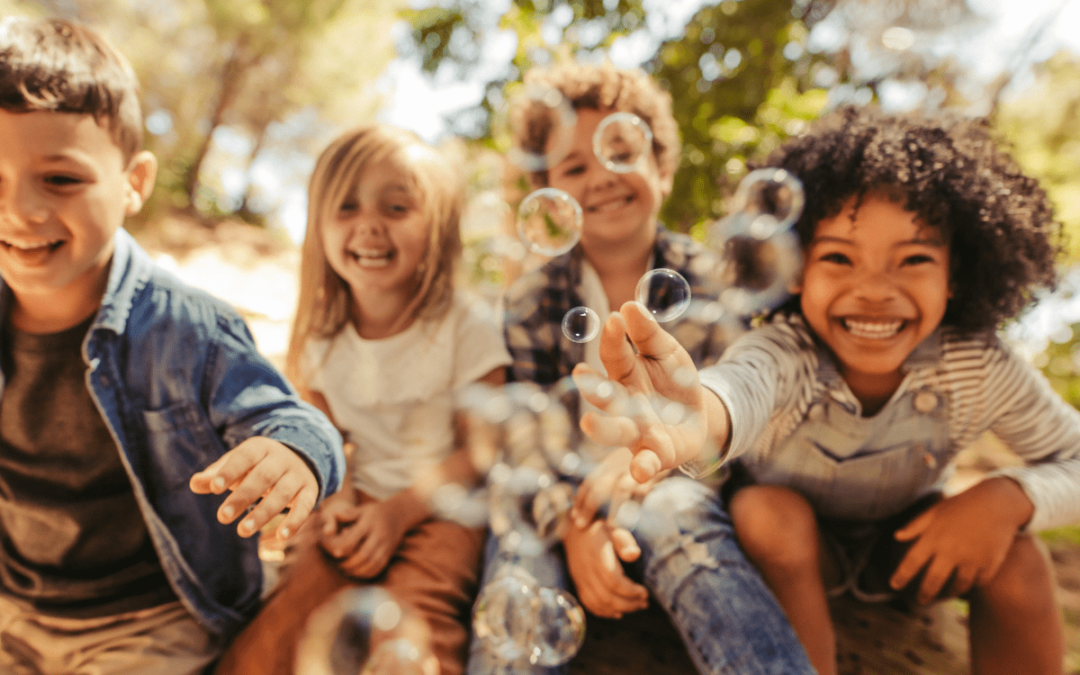The Early Years Learning Framework (EYLF) was introduced by the Australian Government in 2009, and is part of the National Quality Framework. The EYLF describes the principles, practices, and outcomes of early childhood learning, while enhancing children’s learning from birth to five years old.
There are five pillars of the Early Years Learning Framework outcomes. The first outcome is identity, the second is community, the third is well-being, the fourth is learning, and the fifth is communication. In this article, we focus on the second EYLF outcome: Children Are Connected With and Contribute to Their World.
What Is The EYLF Learning Outcome 2?
The second EYLF Learning Outcome is “Children Are Connected With And Contribute To Their World” and refers to community. The main themes of Outcome 2 are belonging, being, and becoming, which refer to how a child connects and contributes to the world around them.
The EYLF breaks down the second learning outcome into four indicators:
- Children develop a sense of belonging
- Children respond to diversity with respect
- Children become aware of fairness
- Children show respect for the natural environment

Children develop a sense of belonging
Children will develop a sense of connection and belonging to a group or community – this is the first indicator of EYLF Learning Outcome 2. Childcare centres create opportunities for children to explore their ideas through play and learning. Through these opportunities, children are taught the necessary skills to interact safely with others while exploring their curiosity about the world around them.
Children will recognise their position in the community and begin expressing their opinions about decisions and ideas. Our childcare educators at Raising Stars model language that children can use to express their opinions respectfully while achieving their goals.
Children respond to diversity with respect
When children develop a sense of belonging in the community, they will naturally engage with people from diverse cultures, backgrounds, traditions, and family structures. This can raise curiosity in children, leading to more questions, listening to others’ ideas, and becoming aware of their own differences.
As childcare educators, we encourage children’s interests and help broaden their perspective. Through lessons on people’s differences, including languages, traditions, and opinions, children can learn to explore diversity in a respectful way. Our educators take the time to understand our students’ heritage, culture, and family dynamics, helping children navigate their differences and understandings.
Children become aware of fairness
By understanding diversity in the community, children will become aware of the importance of treating people fairly. Children will begin to observe and recognise unfairness and biases among their classmates, such as who is excluded and included in lunchtime games.
Childcare educators encourage children to treat others with empathy and kindness. By normalising people’s differences during class learning, children can continue their exploration of diversity with a compassionate perspective. Our educators take the time to develop trust with our students, welcoming children in our centre to discuss their ideas and concerns about fairness.
Children show respect for the natural environment
Over time, children will develop a greater sense of care and respect for their natural environment, demonstrating a growing social responsibility. Children begin to observe environmental changes, like the weather and seasons, and develop an interest in caring for living things.
Childcare educators create lessons and activities that incorporate the natural environment, such as taking care of plants, recycling, and learning about animals. By teaching our students about their impact on the world around them, our educators foster an interest in the natural environment by emphasising their social responsibility.
The Role of Family in Connection and Contribution to the World
Childcare centres that adopt the EYLF Learning Outcome 2 help children develop a strong sense of belonging, being, and becoming connected to the world around them. Family and caregivers can continue to support their child’s learning at home through activities, discussions, and by encouraging their curiosity. Our childcare educators collaborate with parents and carers to create environments where all children can experience enjoyable, caring, and respectful relationships with others and their surroundings.


